Why go electric
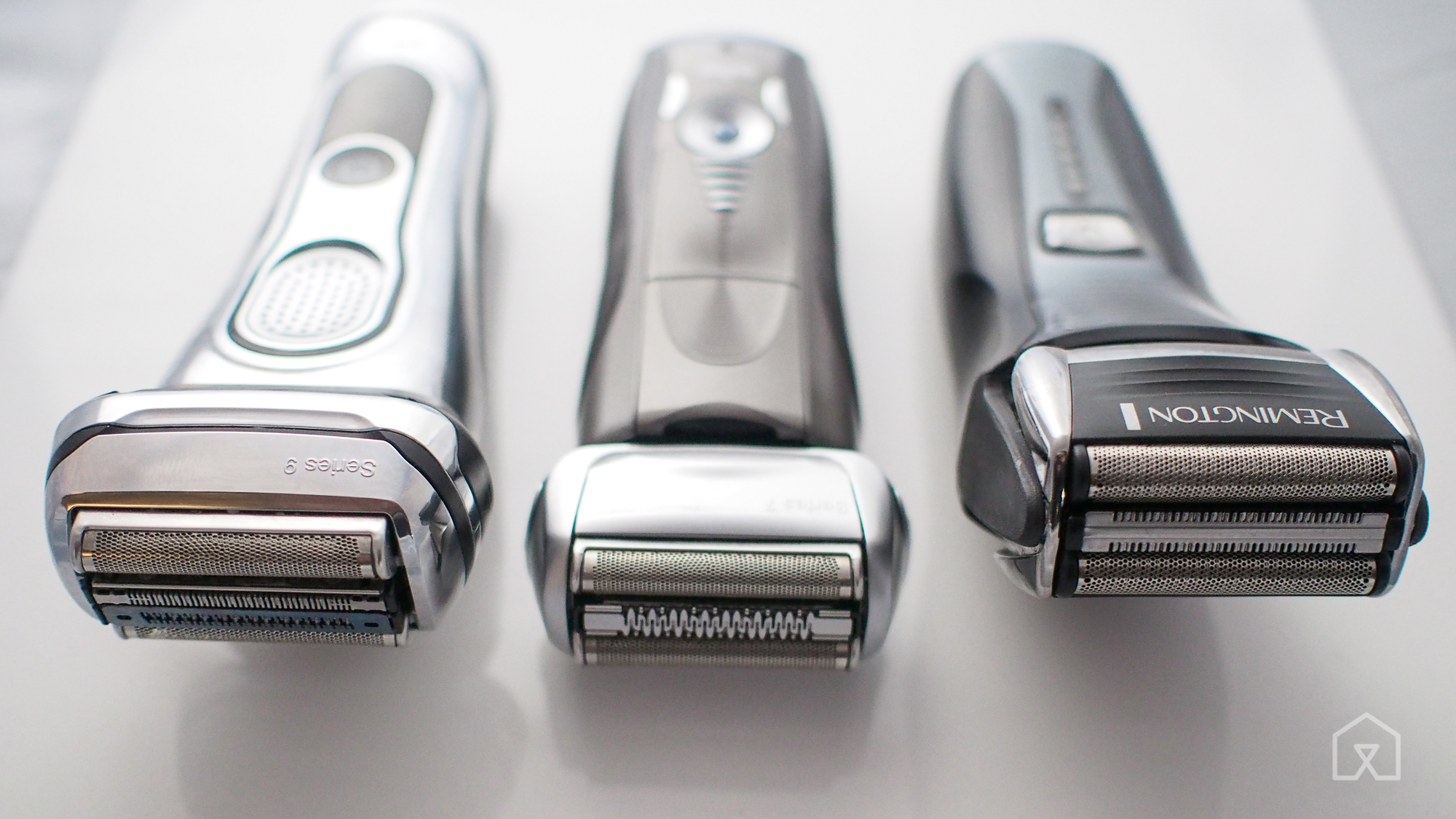
We prefer foil shavers. Here, from left, Braun’s Series 9, Braun’s Series 7, and the Remington F5-5800. Photo: Dan Koeppel
The traditional sales pitch for electric shavers has always been that they offer a valuable convenience and safety proposition. But modern, multi-blade–shaving manual systems have made wet shaving much faster, safer, and more convenient.
Those who find manual shaving too rough on their skin might also try electric shaving. Black men can be particularly predisposed to ingrown hairs and razor bumps, due to their typically coiled hair, so the less-close shave of electric can help, and people of any race who have coarse or curly whiskers can benefit. (Some medical studies, like this one from 2010, show that electric shaver users may be less likely to experience these conditions.)
People who travel frequently may also prefer an electric shaver, because you don’t run into TSA restrictions on blades, aerosols, and toiletries. All the shavers we tested last at least two weeks on a single charge; units that came with clean/charge stations also can be charged directly from the standard included power adapter.
The foil heads found on most electric units are fragile, and if you dent or bend one, you’ll need to replace it. Most shavers come with some kind of case or shaving head protector. We recommend using it.
How we picked and tested
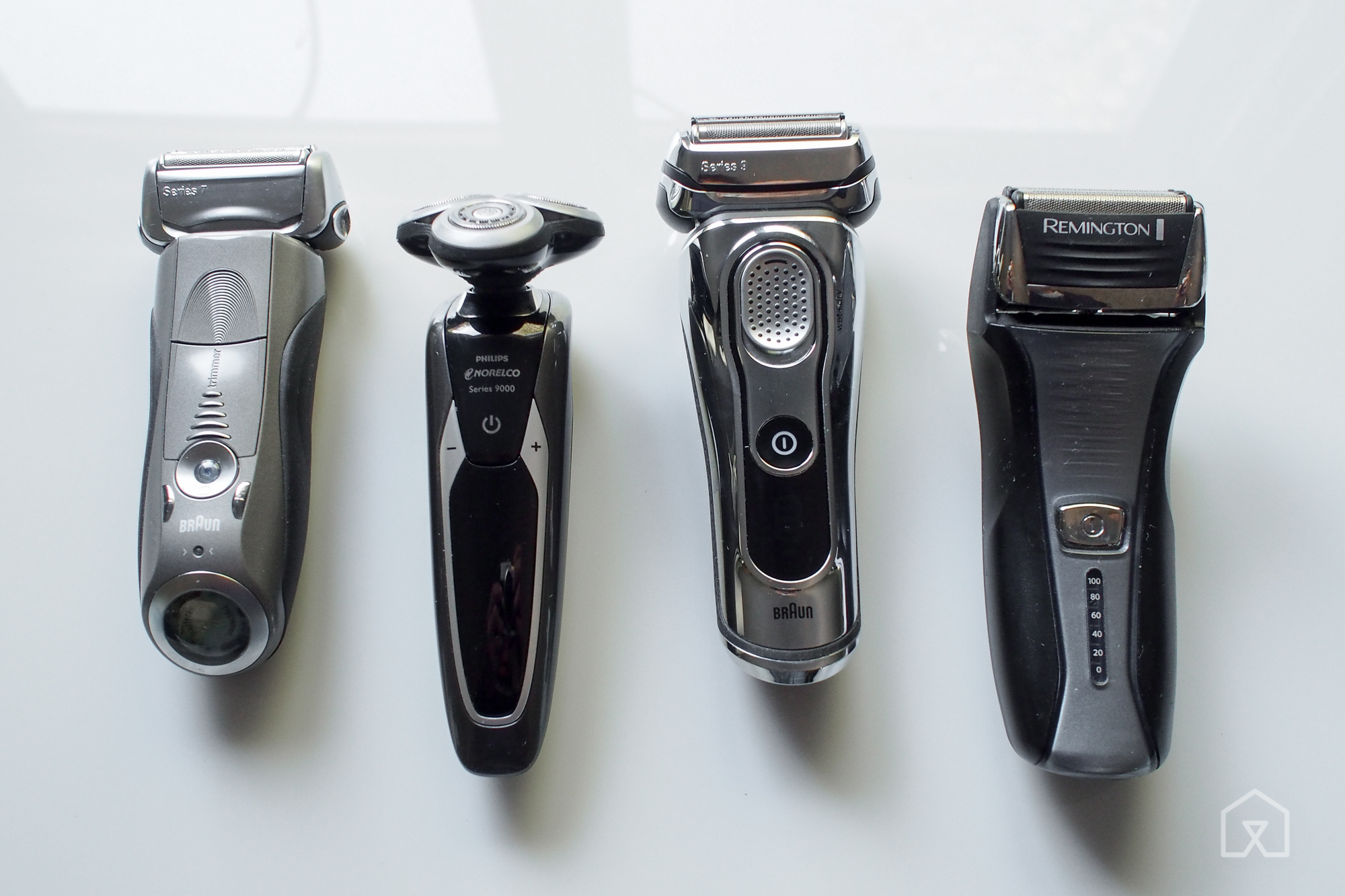
All our picks, from left: the Braun Series 7, the Philips S9311, the Braun Series 9, and the Remington F5-5800. Photo: Dan Koeppel
We decided our criteria for the winning shaver would be based exclusively on closeness of shave, though we did evaluate cleaning and charging systems.
We wanted to test high- and low-end models from all the major razor companies. We wanted to come up with picks for a range of budgets, and we wanted a wide enough variety of testers to determine just how fancy a shaver a particular type of user might need.
Through our research, we learned that shavers are the same across different models in a series. Different accessories and add-ons don’t change the closeness of a shave, but can shift the price of a shaver by as much as $100. Read our full guide for a feature-by-feature breakdown of cost effectiveness.
After gathering 15 models, we asked each tester to keep the razors long enough to test against whatever their standard “I need a shave” interval was. We then asked for a double growth test—skipping a shave—and a triple shave’s growth. We asked testers to be mindful of closeness, speed, and irritation. For more on our testing procedures, see our full guide.
Our pick
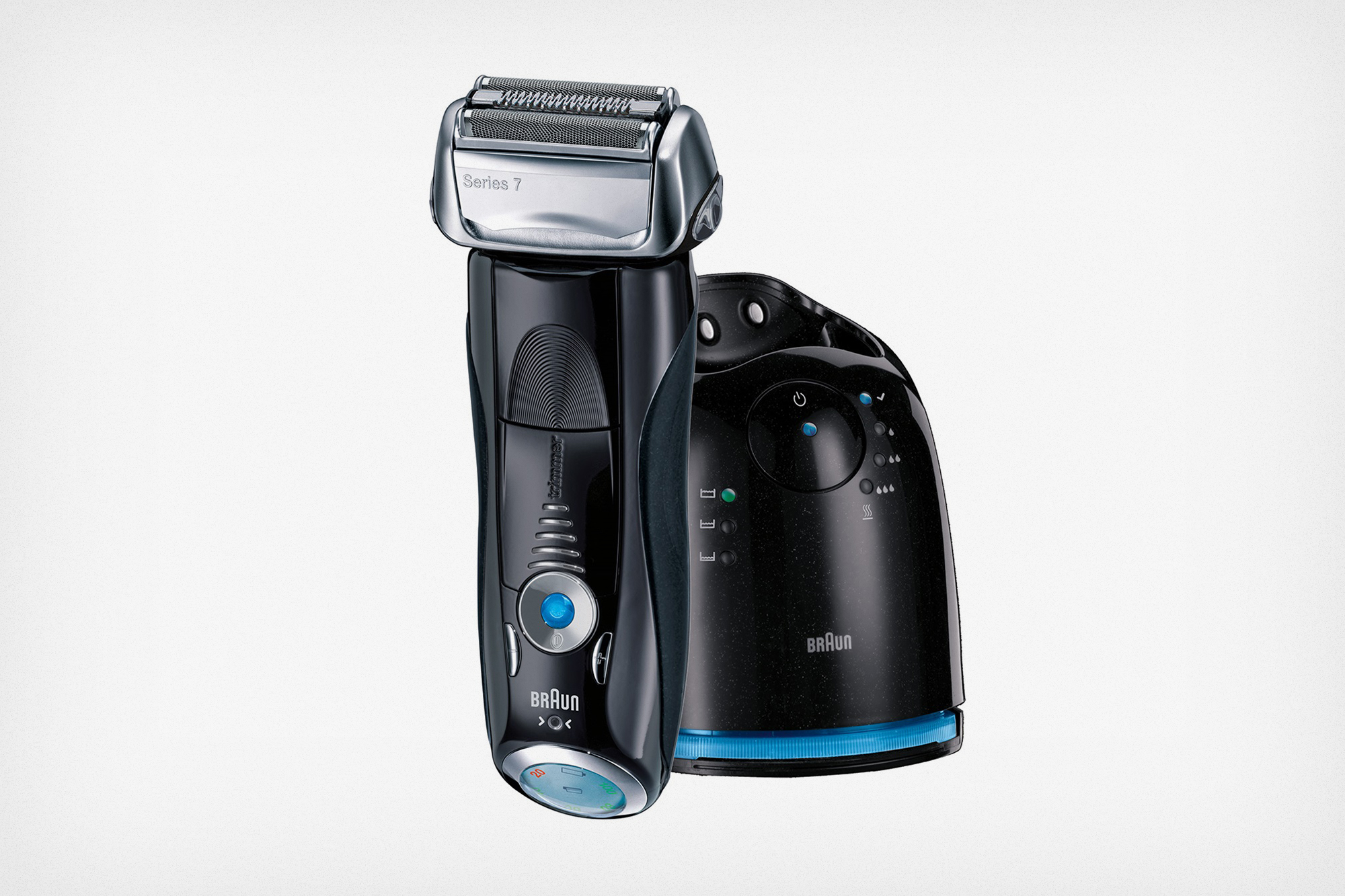
Photo: Dan Koeppel
In the end, the Braun Series 7 was the clear winner. It was the only shaver all our testers agreed worked well, shaving closely and without irritation. Though it is no longer Braun’s top-of-the-line offering, the Series 7 still offers a just-right combination of upgrades over lower-end models and compared with the new Series 9.
The Series 5 and Series 7 were close enough that we wondered what the difference between them was. As it turns out, the Series 7 uses “Pulsonic” technology; the product’s faster vibrations are designed to lift hair faster and more completely. In practice, we found it actually worked.
A more visible difference is the way the heads of the two razors move. Though both heads pivot, the Series 7 features floating foils that adjust individually in multiple directions; there’s less independent movement in the Series 5’s foils. It’s important to note that when comparing shavers, there’s no direct way to compare motor strength. When Braun’s Pulsonic system claims “10,000 vibrations” compared with Panasonic’s “13,000 cycle linear drive,” you’re dealing mostly with marketing terminology—though the higher-end occupants of any one manufacturer’s product line did seem to run stronger than their cheaper stablemates.
Runner-up
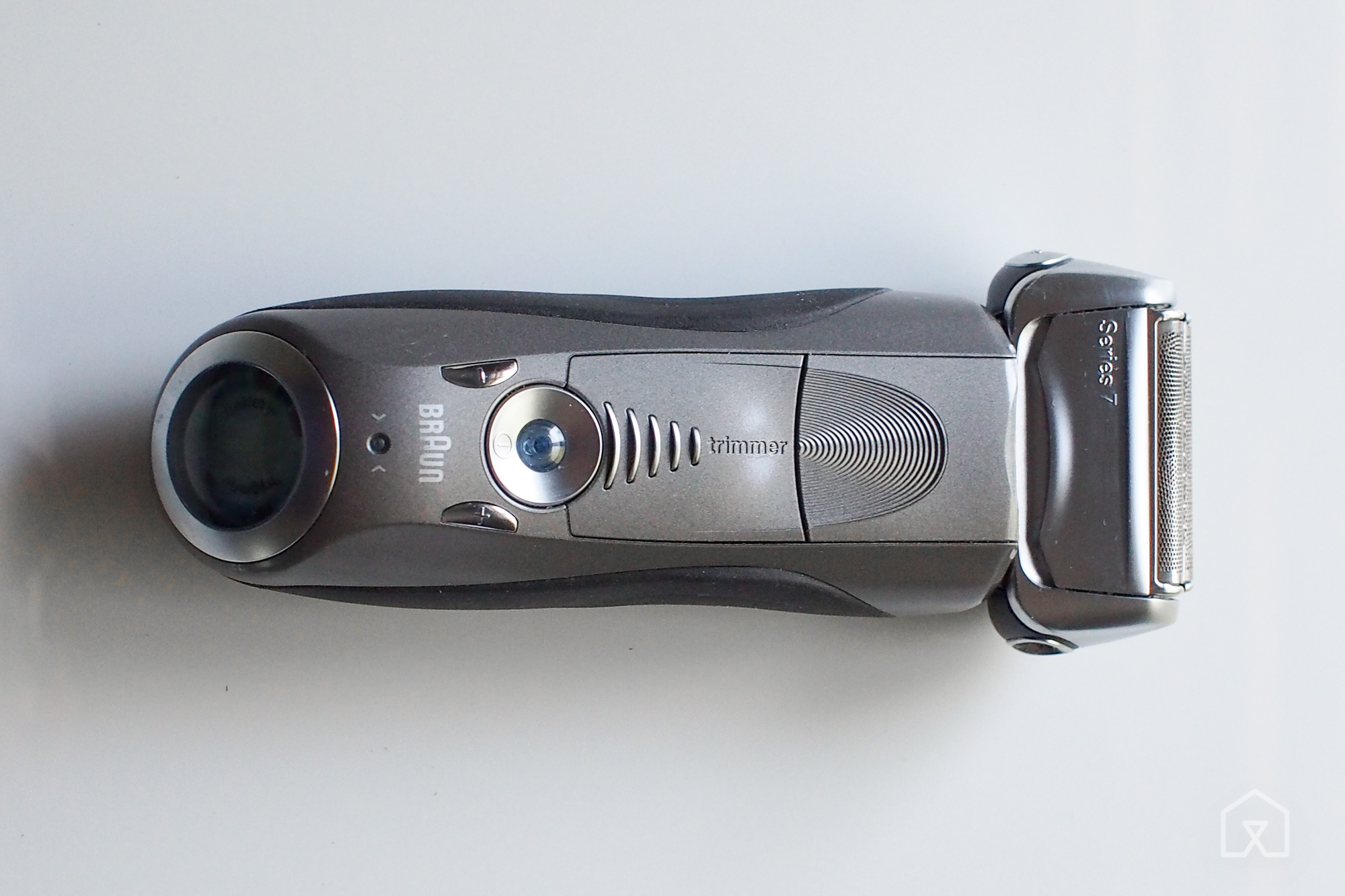
Photo: Dan Koeppel
Our pick is the Braun Series 7 model 760cc. If that’s not available, the 790cc offers the same quality shave with a few extra-but-not-important features. The fanciest among these is that the 790cc includes extra electronic indicators to let you know when foil replacement is needed and whether or not the shaver is dirty. Because foil replacement is subjective—you’ll want to do so every 18 months or so, and you’ll know when your shave quality declines—and the cleanliness indicator is rendered moot if you store the shaver in the charging/cleaning cradle, we don’t consider these features to be worth the extra dollars. But both Series 7 models are now reduced in price, so if you can’t find the 760cc, go with the 790cc.
Upgrade pick
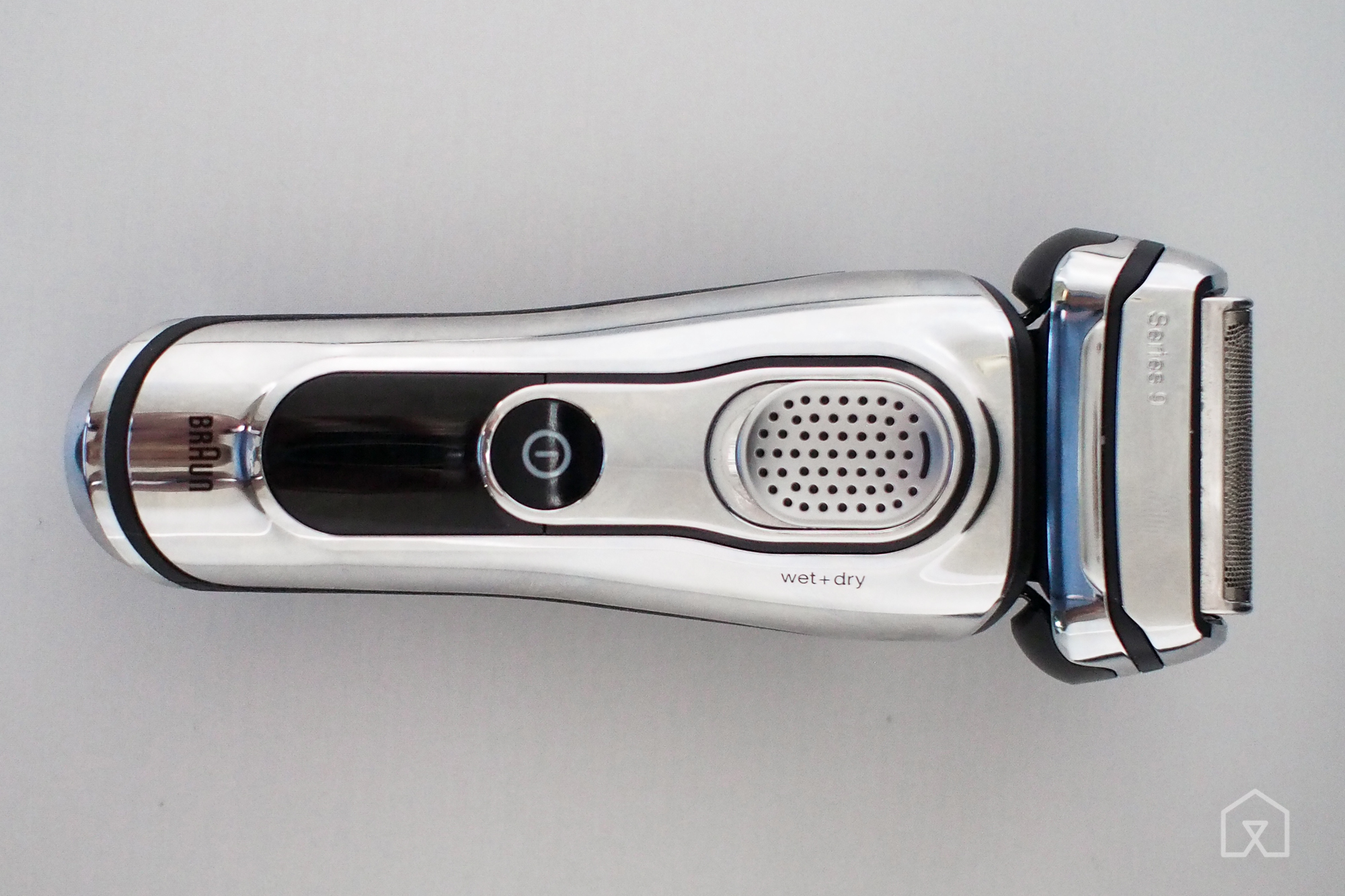
Photo: Dan Koeppel
Rumors began spreading about a top-of-the-line addition to Braun’s shavers in early 2015. Knowing that we had to test the product, we sent a colleague out to Tokyo’s Akihabara electronics shopping district to pick up a model 9095cc.
On first glance, the biggest difference between the Series 9 and the Series 7 is size. Though the razors weigh the same—each about 7.6 ounces—the Series 9 is longer, has more girth, and has a more top-heavy balance thanks to its quadruple-headed shaving mechanism. That four-way head sticks to the company’s traditional two-foil design but adds a pair of additional cutting mechanisms, a new “direct & cut” trimmer and a “hyper-lift & cut” trimmer, that the company claims better snag wiry, unruly whiskers.
All this means—and most of our testers agreed—that the Series 9 is an amazing shaver. For those who loved it, it shaved faster and smoother than anything we tried. For everyone else, the Series 7 will get your face smooth quickly enough and at enough of a savings to buy several years’ worth of replacement cutting blocks, foils, and cleaning solution.
Budget pick
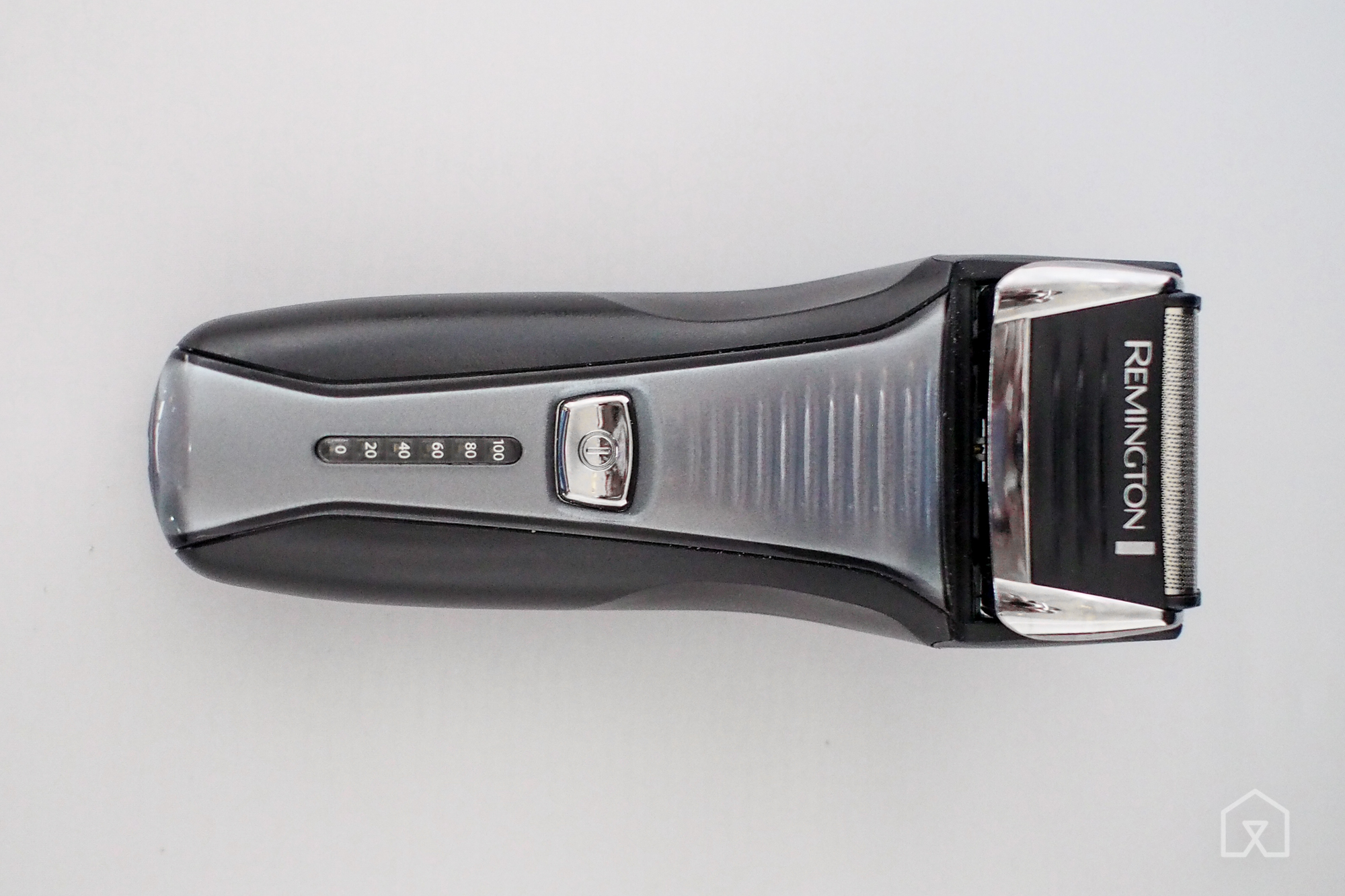
Photo: Dan Koeppel
In searching for models under $50, we found that the Remington F5-5800 holds the fort against the lower-end Brauns and Panasonics. It uses a NiMH battery, instead of lithium-ion as the Brauns do, but Amazon reviewers report that they get more than an hour of shaving per charge time even after several years of usage. Remington’s replacement foils are half the price of Braun’s and Panasonic’s as well (and you may have to replace them more, not because they’re any less durable, but because the Remington comes only with a cheap plastic head protector that’s easily lost). Nevertheless, the Remington offers generally good performance, though you’ll likely find the shave experience itself to be buzzier and potentially more irritating if you don’t maintain a very light touch.
This guide may have been updated by The Sweethome. To see the current recommendation, please go here.
Note from The Sweethome: When readers choose to buy our independently chosen editorial picks, we may earn affiliate commissions that support our work.





